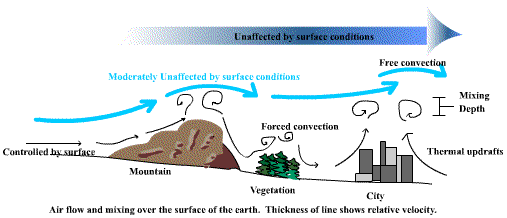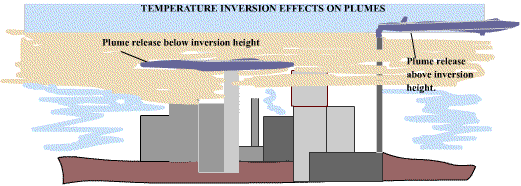| |
The Homosphere
The concentrations of the major gases in the homosphere remain relatively constant due to
convective currents and the effects of heat and moisture on air flow patterns
near the earth's surface.

The homosphere contains aproximately 78%
nitrogen, 21% oxygen and about 1% a mixture of other gases including argon, carbon dioxide, neon, helium, methane, krypton, hydrogen, dinitrogen monoxide, carbon monoxide, xenon, and ozone by volume. Under most atmospheric conditions the composition of the homosphere is quite uniform. Air in contact with the earth is warmed and rises. Cooler air sinks and is warmed by contact with the earth. A notable exception occurs when a warm air mass remains stable over a cool one. This is known as a temperature inversion and results in pollutants being trapped near the surface of the earth. 
Temperature inversions influence atmospheric stability in the lower
troposphere. In regions where air drainage out of enclosed
valleys occurs as in Los Angeles and Mexico City, the pollutants can be
trapped over highly populated areas where they are produced rather than
being dispersed by air currents.
Report technical/content problems here
|
|